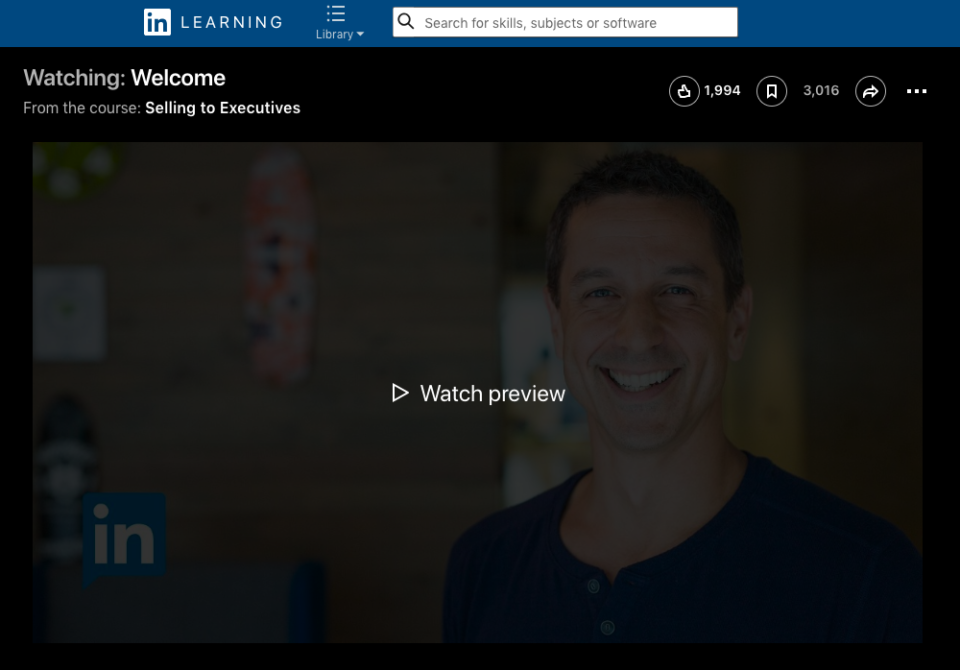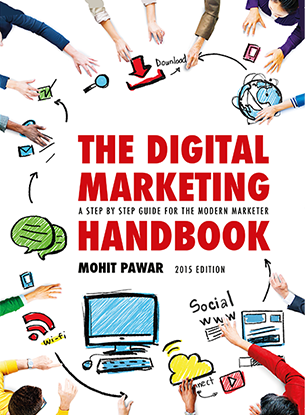
Leo Babauta was overweight and in debt.
He used to smoke and wanted to quit. He tried many times but couldn’t. He kept on trying. After multiple tries, he was able to quit finally in November 2005. It was the beginning of a big transformation. This win in one area of his life gave him the confidence and paved the way for bigger successes.
He eventually ran a marathon, started an award-winning blog, and became a bestselling author. All this happened in a span of a few years. It started with Leo quitting a bad habit and then following it up with consistent action.
I have found big inspiration in his journey.
Based on growth stories like Leo’s and my own experiments I can confidently say that breaking bad habits gives you strength and confidence to pursue big goals.
You don’t need to start with a particular habit. Look around and see what seems to pull you down the most mentally or physically.
I am sharing some prompts for you to see and decide if you’d like to start with one of these.
BAD HABIT #1: PHONE ADDICTION
The phone brings us close.
It also keeps us away from what is important.
You use your phone to connect and learn.
You also use it to browse i.e. become the product for the apps because your attention is what Facebook, Google, and others are selling. You use it to peep into what others are up to because you fear missing out, or to generally kill time. This is similar to drowning in the depths of a deep murky river except you don’t die.
How to break it?
Put your phone on airplane mode before going to sleep and do not open it until you have done something good for yourself like saying a prayer, drinking water or doing some push-ups.
After the initial success (in a couple of weeks or a month)
Start keeping your phone in other room while you are at home and behind your laptop while at work. Remove time-consuming apps from your phone. Use your favorite messaging app as voice mail alternative. You can do it by updating your status as, “I don’t check WhatsApp often. For anything important email me instead.”
BAD HABIT #2: DOING BUT NOT FINISHING – KEEPING LOOPS OPEN
Unfinished work creates stress.
You also lose time, motivation and momentum.
This happens when you don’t think enough about how a new project will fit in your life.
How to break it?
Don’t start something until you’ve thought it through and aim to finish it. I agree real life can take over and come in the way. But don’t leave it midway until reason is big and realistic. For bigger projects do background research. Explore if it is viable and if it will sustain your interest enough to finish it.
After initial success
Get clarity on your WHY and make sure that anything you do is aligned with it. When you believe in what you are doing, it is no longer a chore and you’ll move mountains to finish it.
BAD HABIT #3: MULTITASKING

You switch tasks all the time.
You can’t multitask (work at two or more tasks simultaneously) with the exception of tasks that don’t require a lot of thinking. There also attention suffers. This is why when you talk on the phone while walking your awareness of your surroundings is much lower than when you are sitting and talking.
Task switching is like mental juggling.
Psychologists have conducted studies to assess the cost of this juggling. In these experiments, they compare how long it takes to complete tasks while switching tasks as compared to doing each task one after another. Across studies, they found that it took longer to finish tasks when switching tasks. The cost of switching increases when you are less familiar with a task that you are switching to; and when you are switching between two complex tasks. [1]
How to break it?
Commit to distraction-free sessions. One session can be 10-15 minutes. Repeat as many as you can in a day. 4 sessions will mean 1 hour of distraction-free work. You will do it a lot this way.
After initial success
Do the most important task first so that you are not tempted to go back to it.
Do less and focus on tasks that bring you maximum value. Rest delegate or delete. When you have less to do there will be less switching.
Batch tasks. Errands and laundry, sales outreach, writing, and planning – do them on different days.
David Rock, author of Your Brain at Work: Strategies for Overcoming Distraction, Regaining Focus, and Working Smarter All Day Long writes:
“… (a) study, published in October 2005, found that employees spent an average of 11 minutes on a project before being distracted. After an interruption, it takes them 25 minutes to return to the original task, if they do at all. People switch activities every three minutes, either making a call, speaking with someone in their cubicle, or working on a document.”
BAD HABIT #4: REACTIVE APPROACH TO LIFE

Is this you?
Day starting with scrolling through the feed and seeing a series of updates by people you barely know or care about. Later reacting to a phone call while you are in midst of checking your inbox and noticing an email from your boss or a client.
Most of us, tend to live like this.
If your day is made up a series of reactions then you will have no time and space for thinking through your actions and making solid plans.
Proactive action helps you grow. Through reactive action, you help complete other people’s tasks and responsibilities.
If you are a cog in a machine then chances are that you are driven by your calendar and a part of what you do and when you do it is set by someone else.
How to break it?
Carve time for proactive action early in the day or late at night. This is enough if you don’t change anything else.
After initial success
If you prefer to do more – then wait to check your email first thing in the morning until you spend 1-2 hours on growth tasks.
Why?
Because your inbox in most cases is somebody else’s priority waiting for your attention. Attend to your own priorities first and then tend to the work you need to do for others.
Another big change you can make is planning the next day’s action at the end of a workday. Limit your list to up to 6 tasks. Write it on a post-it or send a message to yourself. This will allow you to jump right into action when you start the next day.
BAD HABIT #5: WASTING TIME & LACK OF STRUCTURE IN YOUR LIFE
Time is our most precious resource.
We can never get it back. Still, we end up wasting it.
At times we waste time because we can – like on a holiday. Often times it happens because we don’t care for spending it wisely. Netflix binges are a result of this and how effective the company’s technology is in tricking us into a never-ending loop of gratification.
If you want to achieve anything significant you need to protect your time from distractions.
How to break it?
Set clear boundaries.
Create a timetable.
Implement hard stops for everything you do. Whether it is sleeping, working, or using your phone. Start with one boundary.
Want to go even further. Every morning, repeat that time is precious and limited; and you will be mindful of how you spend it.
‘Routine, in an intelligent man, is a sign of ambition. A modern stoic knows that the surest way to discipline passion is to discipline time: decide what you want or ought to do during the day, then always do it at exactly the same moment every day, and passion will give you no trouble.’ — W. H. Auden
BAD HABIT #6: MINDLESS EATING
You want to do more and think that eating is not that important. You eat while talking or with a screen in front of your eyes without savoring what you are eating. As a result, you eat fast and overeat because it takes some time for your brain to register that you are full and by that time you already eat more than you need to.
How to break it?
Put your mobile phone away while eating and chew your bite once or twice more than usual.
Want to do more?
Go for half the amount of food you eat, and take double than your usual time to eat it. This alone will make you lean and your body strong. This happens because with better chewing your body absorbs more nutrients, you feel fuller and more satiated.
BAD HABIT #7: NOT MOVING YOUR BODY
Movement is life.
When you don’t move enough the supply of oxygen to the brain reduces. This results in less than optimal mental performance.
Muscles in the body also atrophy due to lack of movement resulting in a lack of strength.
How to break it?
Move every day.
Walk even if it is for 5 minutes. Longer when you can.
Walking is a more effective way to oxygenate your brain than heavy exercise. In heavy exercise, your muscles require more oxygen and glucose, so less is available to the brain.
Add a middle of the way walk if you can.
BAD HABIT #8: LACK OF SLEEP AND SELF CARE
Roughly 1% of people of the population can get by on 4-hour sleep a night. [2]
Rest of us need 7-8 hours to function well.
You may have done your share of all-nighters as a student. But it is not sustainable because of biological reasons and also because of increased responsibility as you move ahead in life.
If you continue on this path, you’ll crash at some point. For the time you are able to do it your performance will not be optimum.
Research suggests that even moderate sleep deprivation (less than 7 hours) can impair our cognitive ability as much as drinking alcohol. [3]
How to break it?
Go to bed 10 minutes early today. Also, avoid work out right before bedtime.
As a next step, put your phone on airplane mode 2 hours before bedtime.
BAD HABIT #9: NO TIME FOR GROWTH AND LEARNING
Your growth is reliant on two things – you being known and you being relevant and valuable to others, which is based on your skills.
The world around you is changing every day. If you want to be known and stay relevant, make sure that you are learning and growing.
Lack of learning acts like slow poison. You don’t realize its effect in short term but it kills you slowly. If you don’t prioritize it, you’ll wake up in 2-3 years and find that the skills you have are no longer relevant and valuable.
How to break it?
If you aim to be above ordinary then you need to do stay ahead of the curve. For example, earlier growth focused marketers aimed to be T-shaped now they are going for I-shaped. Key is to master the foundation skills and then keep on layering it with what is new and relevant.
Learning is a function of time and attention. If you spend time and pay attention, you’ll learn and grow. You may start with as low as 5 to 10 minutes a day.
There is no dearth of material to learn from.
Start with YouTube. If you are scared of clicking through to other videos, go for LinkedIn Learning. If you work with CXOs a lot then this video is pure gold.

If you want to do more then keep Saturday mornings for a longer learning session of 1-2 or even 3 hours.
Here are the top skills needed in 2019 with learning resources.
You have your prompts now.
Which of these will you start with?
FOOTNOTES.
[2] A tiny percentage of the population needs only 4 hours of sleep per night, Business Insider
[3] Moderate sleep deprivation produces impairments in cognitive and motor performance equivalent to legally prescribed levels of alcohol intoxication. A M Williamson, Anne-Marie Feyer, BMJ



Pingback: - Mohit Pawar.com
🙁 Need to leave everything and focus on just 3. Thank you.
#3 is big, Jigyasa. It will be great. Good luck with it 🙂
Pingback: 31-Day Daily Writing Challenge: What I Learned By Writing A Post A Day For A Month - Mohit Pawar.com
Pingback: Accept The Dip If You Want To Change - Mohit Pawar.com